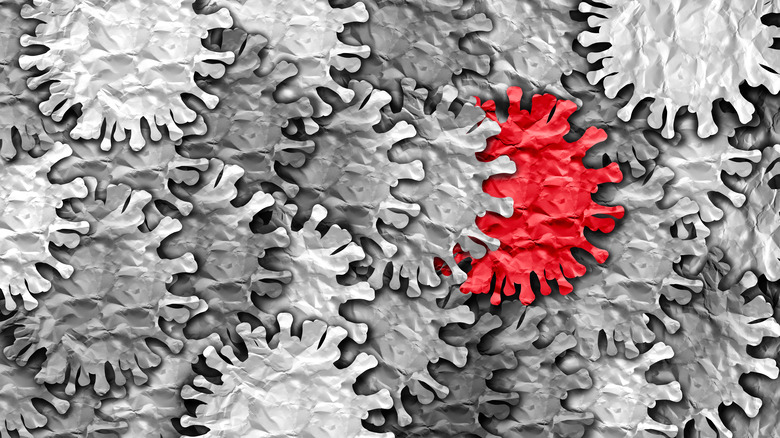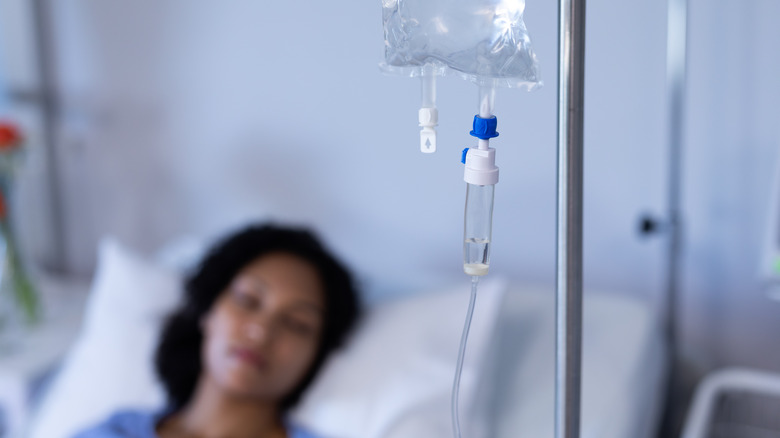What You Need To Know About Monoclonal Antibodies For COVID-19
The COVID-19 pandemic has taken the lives of millions of people around the world. While there are several vaccines on the market that have been effective at slowing the spread of the virus, researchers continue to look for ways to treat the infection caused by SARS-CoV-2. One type of therapy that has been used on other viruses is known as monoclonal antibody treatment.
When the human body detects something unfamiliar, it immediately begins to mount a defense. The immune system starts to pump out antibodies which bind to the invading substance, known as an antigen. This effectively marks the antigen for destruction by other immune cells (via Medical News Today). Antibodies, such as the ones produced by people who have had COVID-19, often stay in the body for months after the infection has subsided.
In theory, a person with COVID-19 antibodies who was exposed to the virus again would be able to fight it off without becoming ill. Because antibodies are so great at keeping viruses at bay, scientists learned how to make copies of them in the lab. These exact copies are known as monoclonal antibodies.
Monoclonal antibodies are promising treatments
Monoclonal antibodies have been used to treat Ebola, HIV, and even in combination with other drugs to fight cancer (via Mayo Clinic). These engineered proteins are made to bind to specific antigens just like a real antibody. Once they've entered the body, they recognize the spike proteins of SARS-CoV-2 and attach themselves to them (via University of Pittsburgh Medical Center). This helps keep the virus from being able to enter other healthy cells and reproduce. If the virus isn't able to reproduce, it can't spread.
In November 2020, the Food and Drug Administration gave emergency authorization for the use of the first monoclonal antibody treatment for COVID-19 (Medpage Today). Bamlanivimab, produced by the pharmaceutical company Eli Lilly, was approved to treat mild to moderate cases of COVID-19. It was created to target the SARS-CoV-2 spike protein and is delivered to patients by IV. Trials of the therapy showed that it reduced the number of hospitalizations or emergency room visits significantly within a month of starting treatment. Doctors aren't sure yet whether monoclonal antibody treatment helps to protect against future infections (via University of Pittsburgh Medical Center). If you test positive for COVID-19 and fit the criteria set forth by the FDA, you may be eligible to receive monoclonal antibody treatment. Since the approval of the first monoclonal antibody treatment, several others have been introduced and used effectively (via CDC).


